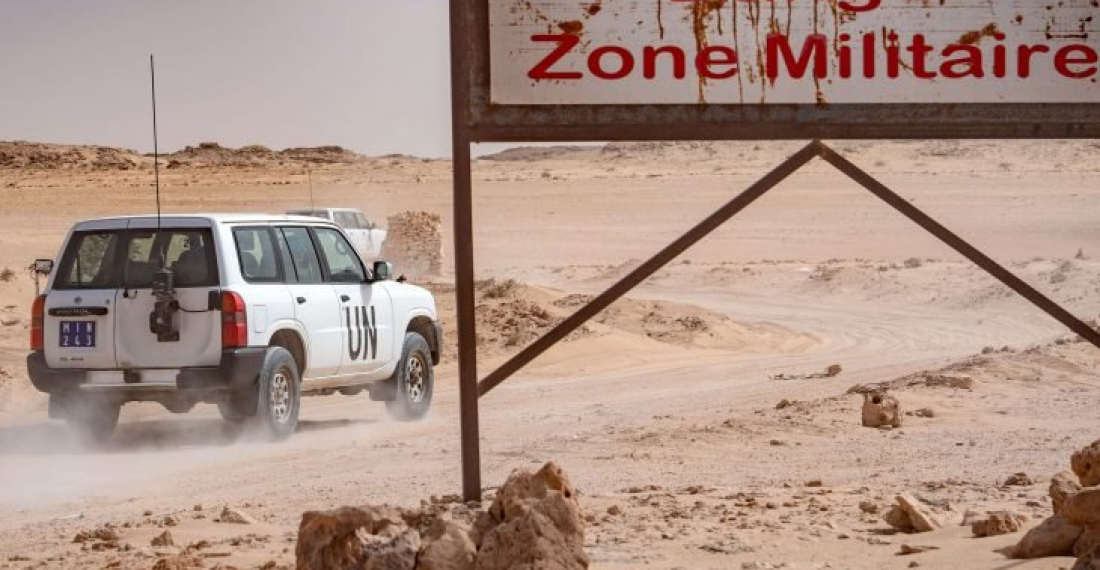Clashes were reported in Western Sahara over the weekend, between the Polisario Front and Moroccan forces near the same border location of El Guerguerat that witnessed tensions last November.
The Saharawi press agency SPS said in a statement on Sunday that Western Sahara's pro-independence Polisario Front launched an overnight attack on the Guerguerat area.
"The Saharawi army launched four rockets in the direction of... Guerguerat," SPS said, citing a military leader of the separatist Saharawi forces.
The statement also reported attacks along the security wall that separates Saharawi fighters from Moroccan forces in the vast desert territory.
A senior Moroccan official told the AFP that there was harassing fire near El Guerguerat but no traffic was disturbed.
Western Sahara is a disputed former Spanish colony, currently mostly under Morocco's control, where tensions with the Polisario Front have simmered since the 1970s. On November 13, Morocco launched a military operation in the buffer zone of Guerguerat, to drive out a group of Saharawi militants who were blocking a transit route to neighbouring Mauritania.
Morocco eventually reopened the road leading to Mauritania. while the Polisario responded by declaring a 1991 ceasefire null and void, arguing the road had not existed when the truce was signed. The two sides are reported to have since exchanged regular fire along the demarcation line.
UN-led negotiations have not taken place since March 2019. There are key differences as Morocco offers autonomy with limited sovereignty while the Polisario calls for full autonomy via a popular referendum. Last year, the US government under former president Donald Trump recognised the Sahara as part of Morocco for the first time in exchange for Morocco normalisation with Israel.
The Polisario Front announced last week that it is ready to resume negotiations with the United Nations on the status of Western Sahara, but added that it did not intend to stop the armed struggle. In a press conference, Omar Sayed Mohamed, the permanent representative of the Polisario Front to the United Nations affirmed the front’s readiness to negotiate and for any mediation, stressing that “For us, this struggle will continue. This is based on the past experience of the Sahrawi people.
Source: commonspace.eu with various agencies
Photo: UN vehicle patrolling the buffer zone in Western Sahara.






